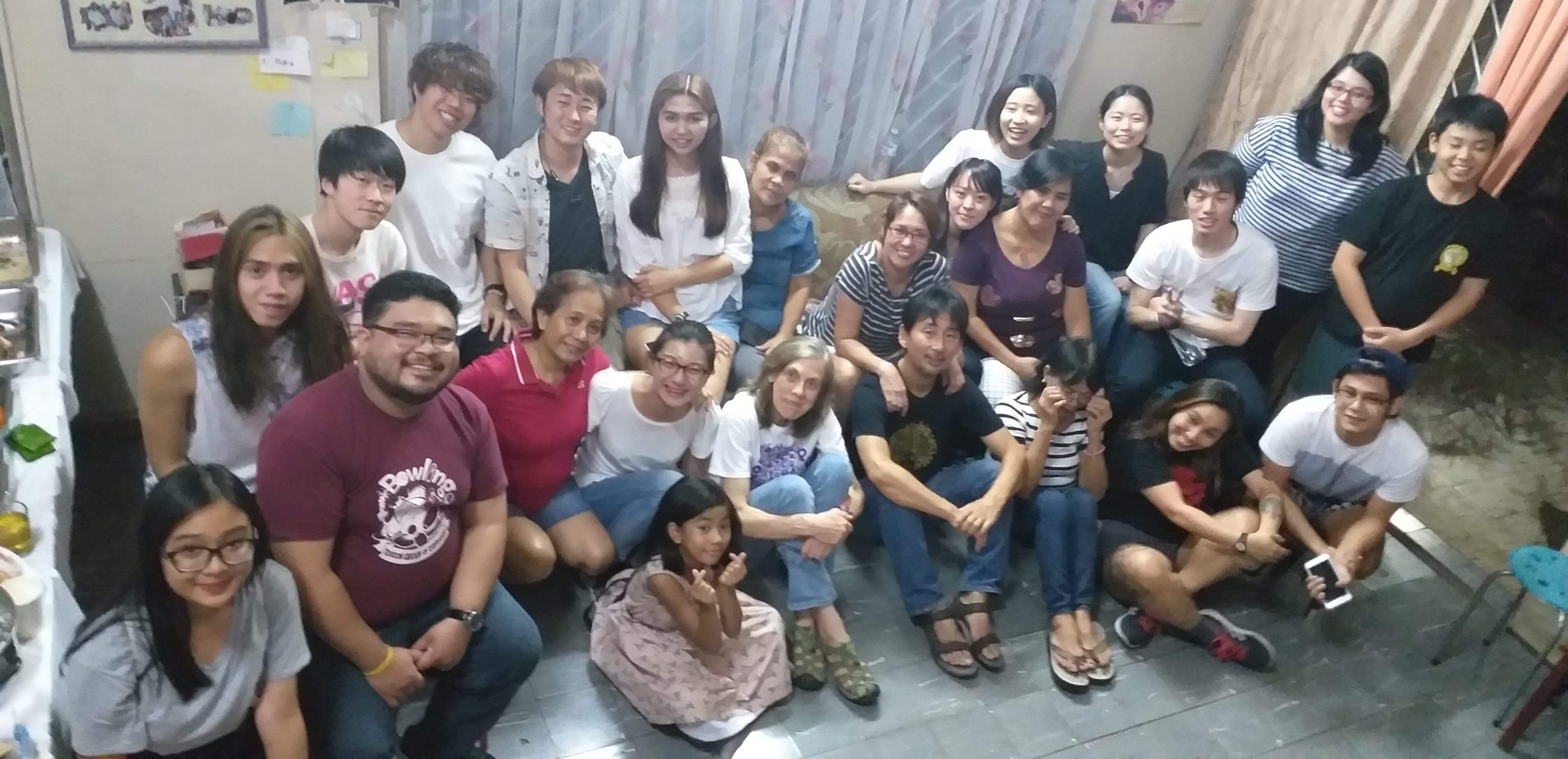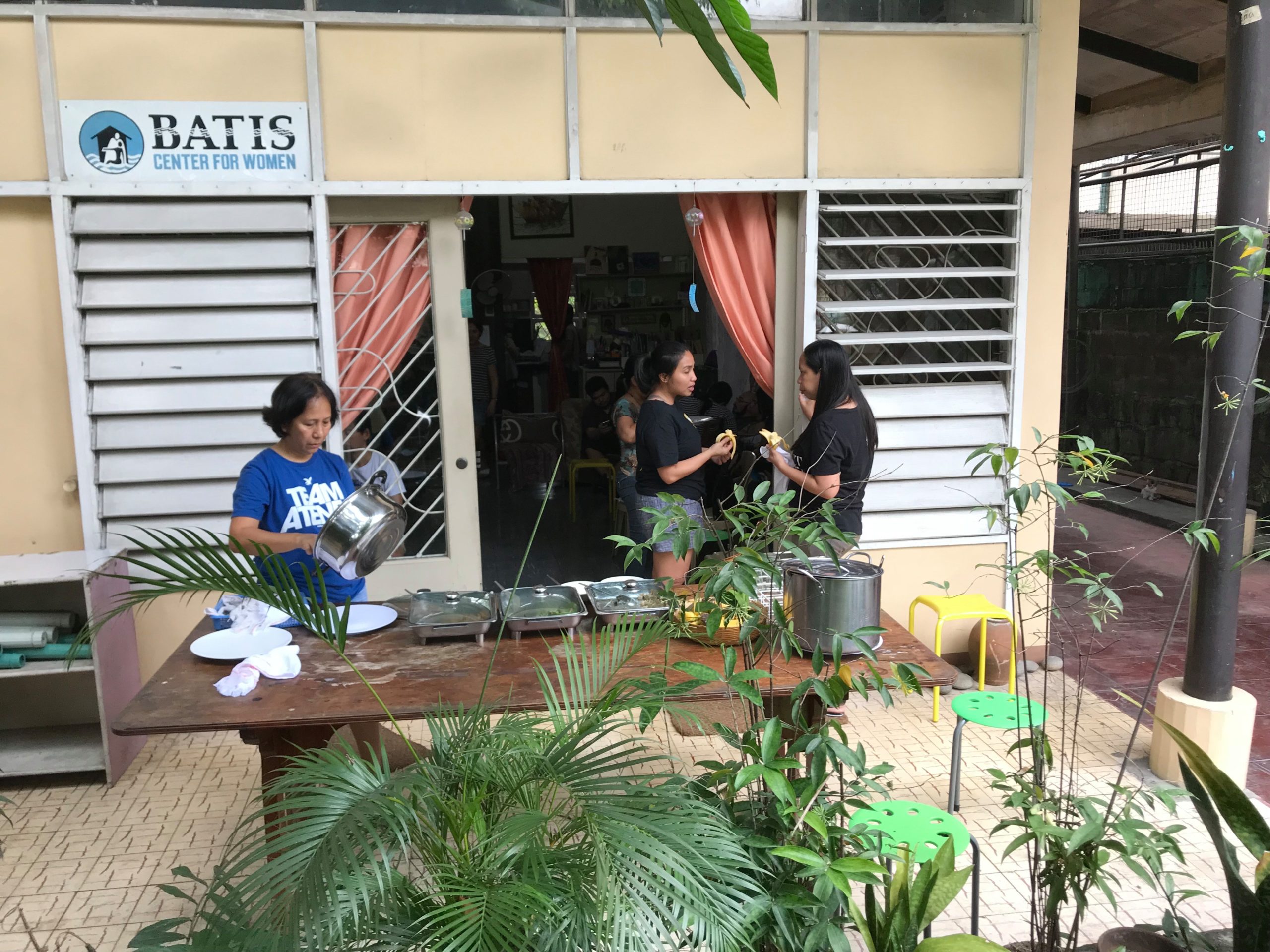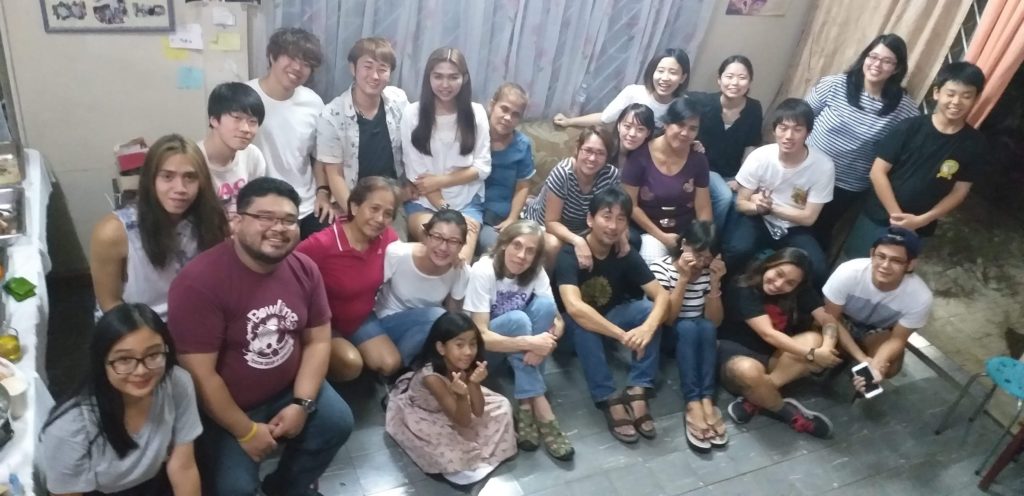Learning Across Borders
Every year, I take my seminar students to the Philippines as part of their course in social work at Doshisha University. For many of the students it is their first experience in a country where most of the population is poor.
 The purpose of the trip is for the students to learn about the reality of poverty and the various ways that organizations are helping the poor, to hear stories from migrant women and their children, and to learn about the deep relationship between the Philippines and Japan. And especially as social work students, it is a valuable opportunity to learn from Filipino social workers about the variety of ways organizations are helping to support and empower people in need.
The purpose of the trip is for the students to learn about the reality of poverty and the various ways that organizations are helping the poor, to hear stories from migrant women and their children, and to learn about the deep relationship between the Philippines and Japan. And especially as social work students, it is a valuable opportunity to learn from Filipino social workers about the variety of ways organizations are helping to support and empower people in need.
We visit Batis Center for Women, a non-profit agency for the empowerment of women migrants and their children. Batis Center was established in 1988 in response to the growing number of Filipino women migrant workers coming home from Japan in distressed conditions. Many women encounter problems while working in Japan as entertainers such as illegal recruitment, trafficking, labor contract violations, and sexual abuse. Other women return having experienced domestic violence or abandonment from their Japanese husbands or partners. We learn from the women’s stories and learn about the ways in which Batis Center assists women. We also visit other agencies, such as those providing care to street children and social businesses providing training and employment to impoverished youth.
 Actually, my life and work in Japan has always included a relationship with people from the Philippines. My first assignment as a mission co-worker was at HELP Shelter in Tokyo, a shelter for abused women including foreign women who were victims of human trafficking. In the 1980’s many of the women seeking assistance were from the Philippines. Moving to Kyoto, I first worked at the YWCA, helping to set up a hotline for foreign migrants. Still volunteering at the YWCA and at the Bazaar Café, I continue to be involved with assisting foreign migrants and their families, many of whom are Filipino.
Actually, my life and work in Japan has always included a relationship with people from the Philippines. My first assignment as a mission co-worker was at HELP Shelter in Tokyo, a shelter for abused women including foreign women who were victims of human trafficking. In the 1980’s many of the women seeking assistance were from the Philippines. Moving to Kyoto, I first worked at the YWCA, helping to set up a hotline for foreign migrants. Still volunteering at the YWCA and at the Bazaar Café, I continue to be involved with assisting foreign migrants and their families, many of whom are Filipino.
Although many migrant workers return home after a period of time, many also continue to reside in Japan, either because of work or through marriage. Filipinos are the fourth largest foreign ethnic group in Japan. As Japan becomes more ethnically diverse, it is important to teach about diversity and acceptance of differences. Increasingly, social workers and other professionals in Japan need to be competent in dealing with people from other ethnic backgrounds, cultures, and languages.
The trip to the Philippines offers a chance for students to learn about social work issues that are international. We have much to learn from other countries’ approaches to social work and also how interrelated our lives are. I trust that the trip this year will offer something invaluable to all of us.
Thank you as always for your support of our church’s mission.
Sincerely,
Martha Mensendiek
Martha serves at Doshisha University, Kyoto, Japan through the Council on Cooperative Mission. Martha is a professor of social welfare. Her appointment is made possible by your gifts to Disciples Mission Fund, Our Church’s Wider Mission, and your special gifts.

